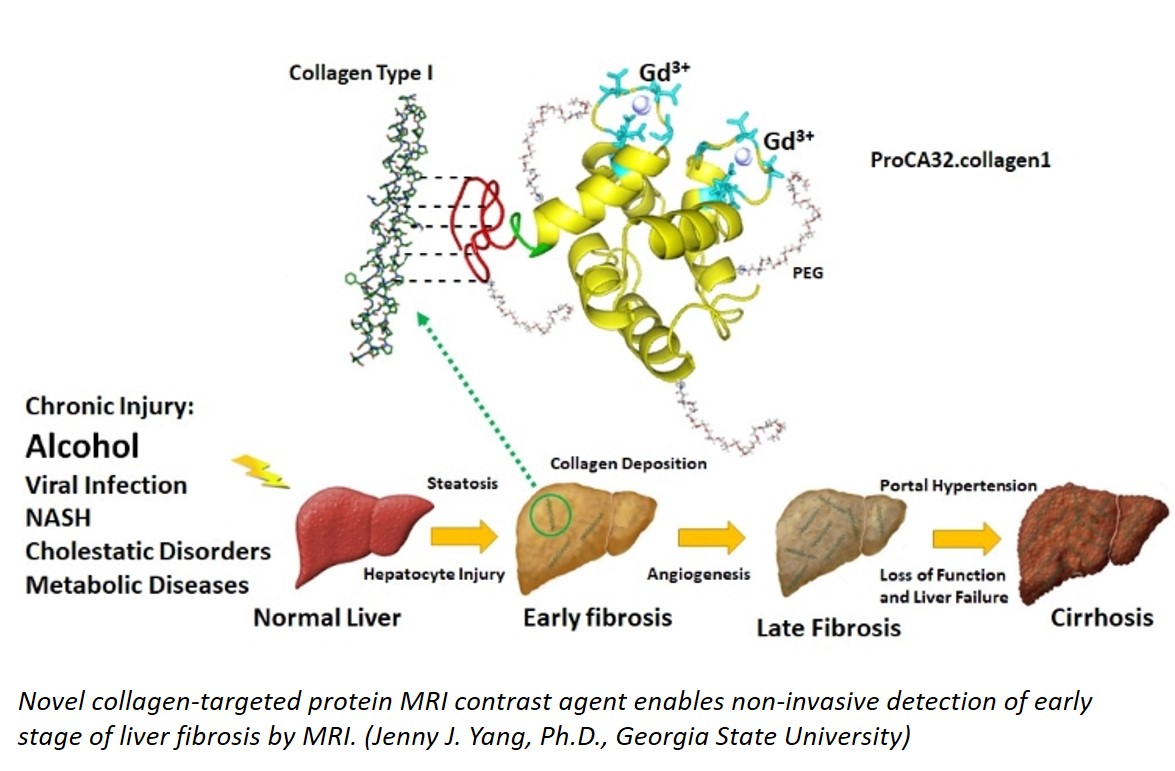Media Advisory: New compound helps find early signs of liver damage
NIH-funded study provides hope for noninvasive detection of early liver disease.
What: A new compound that binds to, and enables MRI imaging of, liver cells in the early stage of disease, has been developed by scientists supported by the National Institute on Alcohol Abuse and Alcoholism (NIAAA), part of the NIH. Researchers report that, in imaging studies of animal models of liver disease, the new compound (a protein-based MRI contrast agent) can accurately detect early stages of chronic liver disease, including mild fibrosis. The new compound was also able to assess the severity or stage of liver damage without the need of biopsy. An invasive procedure that involves the surgical removal of liver tissue, biopsy is the current standard for diagnosing and staging chronic liver diseases.

Article: M Salarian, RC Turaga, S Xue, M Nezafati, K Hekmatyar, J Qiao, Y Zhang, S Tan, OY Ibhagui, Y Hai, J Li, R Mukkavilli, M Sharma, P Mittal, X Min, S Keilholz, L Yu, G Qin, AB Farris, Z-R Liu, and JJ Yang. Early detection and staging of chronic liver diseases with a protein MRI contrast agent. Nature Communications DOI: 10.1038/s41467-019-11984-2 (Oct. 29, 2019).
Who: NIAAA Director George F. Koob, Ph.D., is available to comment on this research.
Funding: This research was funded by NIAAA through a NIH Small Business Technology Transfer (STTR) program grant to InLighta BioSciences L.L.C., of Atlanta, Georgia. The principal investigator is Jenny J. Yang, Ph.D., the founder and president of InLighta Biosciences. Dr. Yang is also a Professor of Chemistry in Georgia State University’s Center for Diagnostics & Therapeutics in Atlanta. Additional support was provided by the National Institute of Biomedical Imaging and Bioengineering, the National Cancer Institute, and the National Center for Research Resources.

